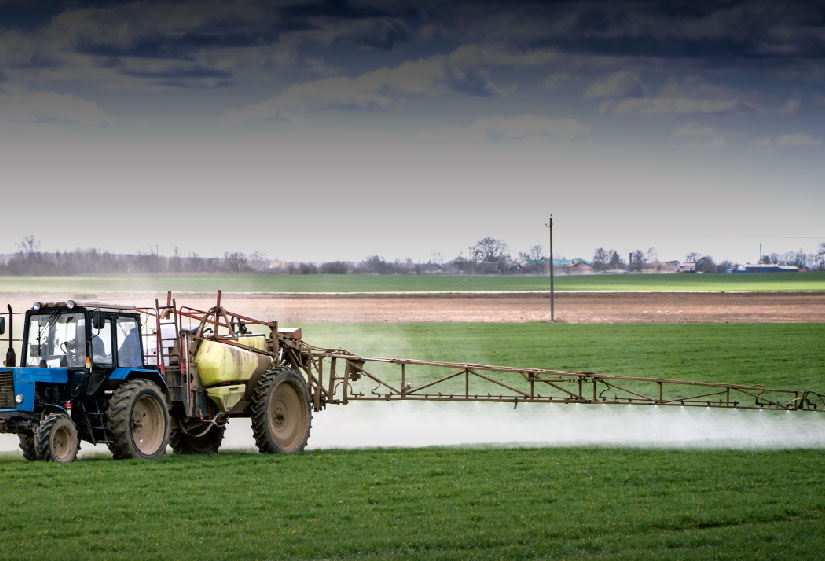Agriculture Surfactants Market: Enhancing Agricultural Efficiency and Sustainability
Agriculture and Agri Inputs | 01-Jan-2025


The agriculture surfactants market is experiencing significant growth, driven by the increasing demand for sustainable agricultural practices, the need for improved crop yields, and the rising global population. Agriculture surfactants, which are surface-active agents, play a crucial role in improving the effectiveness of agrochemicals such as pesticides, herbicides, fungicides, and fertilizers. These surfactants enhance the spreadability, wetting, penetration, and adherence of agrochemicals, ensuring their optimal performance while reducing the overall quantity required for treatment. As the agriculture industry focuses on improving productivity and sustainability, surfactants are becoming essential in developing more efficient, eco-friendly solutions to address the growing challenges of modern farming.
One of the primary drivers of the agriculture surfactants market is the increasing adoption of integrated pest management (IPM) practices, which emphasize the use of biological and chemical solutions in combination with sustainable farming methods. Surfactants improve the efficacy of agrochemicals, making them more effective even at lower application rates, thus minimizing the environmental impact of farming. The growing trend toward sustainable agriculture, which aims to optimize resource use while minimizing harm to ecosystems, has made surfactants indispensable in enhancing the performance of crop protection products. This demand for greener, more efficient solutions is expected to drive the growth of the agriculture surfactants market.
Surfactants also play a critical role in improving the delivery and efficacy of fertilizers. By enhancing the absorption and penetration of nutrients into the plant system, surfactants ensure that fertilizers are more effective and reduce the risk of nutrient runoff, which can lead to environmental pollution. With the rising focus on reducing chemical inputs and improving nutrient use efficiency, the role of surfactants in fertilizer formulations is gaining prominence. Moreover, the integration of surfactants in seed treatments and foliar applications is helping farmers optimize yields and protect crops from pests and diseases.
In addition to their role in agrochemical formulations, agriculture surfactants are used in a wide range of applications, including soil wetting, anti-foam agents, and emulsifiers. The versatility of surfactants makes them useful across various agricultural segments, from conventional farming to organic farming, where the use of chemicals is often limited. Surfactants also contribute to soil health by improving water retention and soil structure, which is particularly important in regions facing water scarcity. As the global population continues to grow and arable land becomes scarcer, optimizing water and nutrient usage in farming will be critical, and surfactants will play an important role in meeting these challenges.
Technological advancements are helping to improve the performance and environmental compatibility of agricultural surfactants. The development of bio-based surfactants, which are derived from renewable resources, is a key trend in the market. These surfactants offer a more sustainable alternative to traditional petrochemical-based surfactants, reducing the environmental footprint of agriculture. Additionally, the use of surfactants derived from natural oils, such as vegetable and citrus oils, is gaining traction due to their biodegradability and lower toxicity. This aligns with the growing consumer demand for organic and eco-friendly products, as well as regulatory pressures aimed at reducing the use of harmful chemicals in farming.
Several players in the agriculture surfactants market are focused on developing novel products that combine high performance with environmental sustainability. For instance, companies are working to formulate surfactants that are effective in both conventional and organic farming systems, ensuring that the benefits of these products are accessible to a wide range of agricultural practices. Furthermore, innovations in the formulation of surfactants are improving their compatibility with various agrochemicals, enabling more targeted and efficient applications that enhance both crop protection and productivity.
The agriculture surfactants market is also benefiting from the rising demand for precision agriculture. Precision agriculture technologies, which involve the use of data and analytics to optimize farming practices, rely on effective agrochemical applications for their success. Surfactants are essential in ensuring that these applications are effective, ensuring that pesticides and fertilizers are used efficiently to maximize crop yield and minimize waste. This is especially important as farmers face pressure to increase productivity while reducing environmental impacts, making the use of surfactants a key element in achieving these goals.
Recent Developments in the Agriculture Surfactants Market
- Launched a range of bio-based agricultural surfactants designed to improve the environmental profile of farming practices while enhancing agrochemical performance.
- Introduced new surfactant technologies that improve the uptake and retention of nutrients in plants, promoting better fertilizer efficiency and reducing nutrient loss to the environment.
- Developed surfactants with enhanced compatibility for use in both conventional and organic farming systems, responding to the growing demand for environmentally friendly agricultural solutions.
- Innovated in creating non-ionic surfactants that provide superior wetting and spreading characteristics, improving the performance of pesticide formulations and enhancing their efficacy at lower concentrations.
Conclusion: The agriculture surfactants market is evolving rapidly as farmers, manufacturers, and researchers seek innovative solutions to address the challenges of modern farming. Surfactants are integral to optimizing the use of agrochemicals, improving crop yields, and promoting sustainable agricultural practices. The increasing adoption of precision agriculture, the rise in demand for bio-based surfactants, and technological advancements in surfactant formulations are all contributing to the growth of the market. With the global demand for food rising and the need for more efficient use of resources growing, agriculture surfactants will continue to play a vital role in ensuring the success and sustainability of farming. As the market expands, companies like BASF, Dow, Evonik, Clariant, and Lubrizol are at the forefront of developing solutions that meet both performance and environmental sustainability goals, ultimately driving the future of agriculture.




